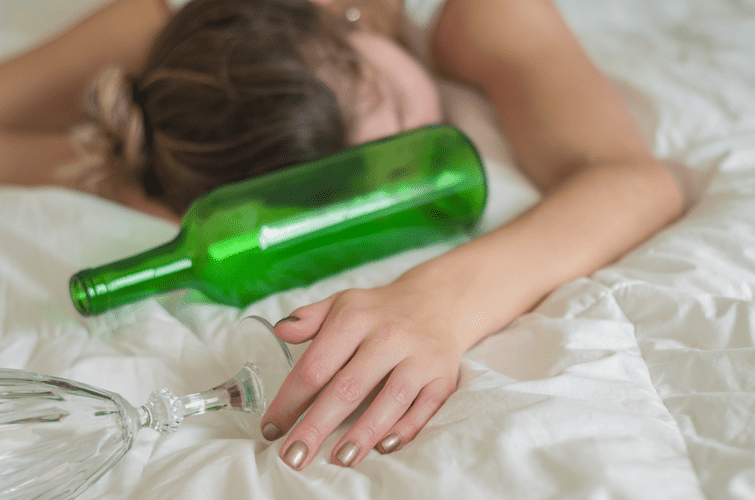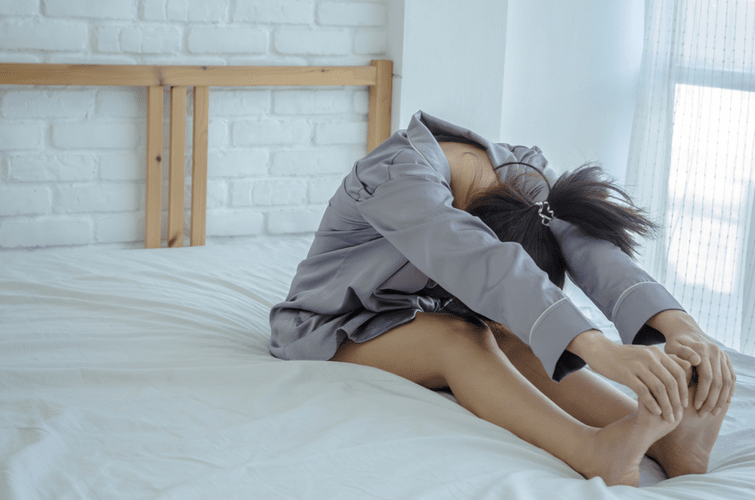- Empty cart.
- Continue Shopping
Sleep Problems Associated With Alcohol Misuse
This period lasts about a week for most people, barring those with severe addiction. Alcohol-induced snoring can be a minor annoyance for anyone you share a bedroom with, but alcohol can also cause or worsen a serious health problem called obstructive sleep apnea. In this type of sleep apnea, the upper airway closes while you are asleep. This can impact your sleep quality, leading you to feel more tired and less refreshed the next morning. One theory is that it disrupts certain neurotransmitters that play a role in your sleep cycle.

How can alcohol worsen symptoms of other sleep disorders?
As the body processes alcohol and blood alcohol levels decrease, mild withdrawal symptoms can occur, even in individuals who do not have alcohol use disorders. These symptoms can include anxiety, restlessness, and increased heart rate, all of which can make it difficult to relax and fall asleep. Paradoxically, some individuals may experience increased sleep disturbances during this period. This is primarily due to alcohol withdrawal symptoms, which can include anxiety, restlessness, and night sweats. Sweating in sleep after drinking is a common issue that may persist or even intensify during the initial days of sobriety. Alcohol has long been known to have a significant impact on sleep quality, despite its reputation as a sleep aid.
Relaxation Techniques to Promote Better Sleep
Decreased REM sleep can impact your mental health and well-being in many ways. Severe and complicated alcohol withdrawal requires treatment in a hospital — sometimes in the ICU. While receiving treatment, healthcare providers will want to monitor you continuously to make sure you don’t develop life-threatening complications. Alcohol withdrawal (alcohol withdrawal syndrome) is a range of symptoms that can happen if you stop or significantly reduce alcohol intake after long-term use. For the treatment of either disorder to be effective, both insomnia and substance abuse should be addressed together. Someone in recovery from alcohol use may experience setbacks because of sleep-related withdrawal symptoms.
Can I take sleep aids during alcohol withdrawal?
While napping might seem like the answer to your fatigue, moderation is crucial during alcohol withdrawal. Short (20-30 minute) naps early in the day can boost your energy in the afternoon without disrupting your nighttime sleep cycle. But longer naps or napping close to bedtime can backfire, leaving you feeling even more restless at night. Drinking alcohol is a popular pre-bed activity, but insomnia after stopping drinking you might find you can’t sleep after a nightcap. And while this might seem beneficial, using alcohol to fall asleep is not recommended.
Denying Our Mental Health: Why We Do It and How To Move Past It
The body’s heightened state of alertness can make you more reactive to environmental stimuli, such as the slightest noise or a hint of light peeking through the curtains. This hypersensitivity can make it challenging to create the calm, dark environment necessary for quality sleep. Dehydration, a common consequence of alcohol consumption, also plays a crucial role in hangover insomnia. Alcohol is a diuretic, meaning it increases urine production and leads to fluid loss. This dehydration can cause discomfort, headaches, and dry mouth, all of which can interfere with sleep. Additionally, the frequent need to urinate during the night can further disrupt sleep patterns, making it challenging to achieve continuous, restful sleep.
Combining alcohol with sleep aids (prescription or over-the-counter) can compound sedative effects and lead to dangerous breathing difficulties or excessive drowsiness. Always consult a healthcare provider before mixing any medications with alcohol. Staying physically active during the day can help you fall asleep at night, as well as promote overall health. Establishing good sleeping habits, also known as sleep hygiene, is an essential first step in good sleep.
While it may take longer for sleep and circadian rhythms to return to normal in people who drink more often in higher amounts, quitting alcohol can help. Drinking alcohol before bed can cause heavier snoring and increase the risk of sleep apnea by 25%. Sleep apnea can overall lower your quality of sleep and cause disruptions throughout the night. Sleep typically begins improving during this period, though inconsistently. The National Institute on Drug Abuse (NIDA) notes that sleep latency (the time it takes to fall asleep) gradually decreases during this phase.
- Carbonated drinks are absorbed by your body easier, which makes you drunk faster.
- Then I received the unexpected gift of sleeping in a room with blackout curtains, a breezy ceiling fan, and no baby monitor.
- Sleep maintenance insomnia means you have a hard time staying asleep, or even if you get eight hours of sleep, it is not restful sleep.
- Once my daughter finally started sleeping, I continued to struggle with my sleep.
- For those considering quitting alcohol, the potential for improved sleep quality can be a powerful motivator.
- Alcohol can disrupt your sleep and reduce your ability to have consistent REM sleep.
Alcohol-induced sleep disorder is a condition where individuals struggle to fall asleep or stay asleep due to alcohol Halfway house consumption. While alcohol is often thought to promote relaxation and sleep, it actually disrupts the natural sleep cycle, leading to poor sleep quality and other health issues. Historically, alcohol has been used as a sedative, but its long-term effects on sleep are harmful. Over time, regular alcohol use can cause chronic sleep problems, significantly impacting both physical and mental health. Another factor contributing to hangover insomnia is alcohol withdrawal.
- However, research has shown that alcohol disrupts your REM sleep, and can make you more wakeful during the second half of the night.
- It’s that transition period from wakefulness to sleep that generally only lasts a few minutes.
- Untreated sleep disorders can have long-term effects on your health.
- Even if you can get to sleep okay, are you staying asleep throughout the night?
This paradoxical condition affects a significant portion of individuals who indulge in alcohol, with studies suggesting that up to 50% of people may experience sleep issues during a hangover. Insomnia is one of the most common symptoms of alcohol-induced sleep disorder, affecting 58-73% of individuals with this condition. Insomnia refers to difficulty falling asleep, staying asleep, or waking up too early and being unable to return to sleep. Alcohol disrupts the natural sleep cycle by interfering with neurotransmitters like gamma-aminobutyric acid (GABA) and glutamate, which regulate sleep. Initially, alcohol may cause sedation, but as it is metabolized, it leads to fragmented sleep and frequent awakenings.
Alcohol and Obstructive Sleep Apnea (OSA)

For example, you might feel overstimulated, restless, and anxious after quitting. All in all, drinking could reduce the quality of sleep you get each night, even if it seems to help you fall asleep faster. This can leave you feeling like you have https://www.cameragialai.com/index.php/2021/11/05/cognitive-dissonance-a-guide-to-mental-clarity-and/ insomnia after drinking alcohol—and it’s why having a nightcap before bed might not be such a good idea after all.
REM sleep represents the last 25% of your sleep cycle, lasting 5 to 30 minutes. The most important stage within NREM sleep is stage three, also known as slow-wave sleep. Progressive muscle relaxation is another powerful technique that can be especially helpful after drinking.
